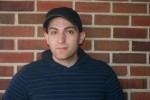By Steven Leahy, Columnist
Students are exposed to experts sharing information and ideas in their fields.
Historians and actors alike teach students who, for the most part, receive their lectures passively — without asking probing questions or voicing disagreement.
While widely this is not accepted as an ideal model of teaching, only recently has information surfaced that shows it may be harming students’ abilities to make decisions later in life.
When rational adults listen to a person they recognize as an expert or authority in a particular field, the decision-making center of their brains literally shuts down.
The listener ceases to analyze what is being said, and merely accepts the information as truth whether it is actually true or not, according to a study performed by economist Noreena Hertz.
In a similar yet unrelated study by Sheena Iyengar, professor at Columbia Business School, it was discovered that the ability to make decisions is not innate, but rather learned through practice, which requires active participation in processing information.
Though these studies may sound unrelated to education, they have huge implications for the classroom.
By not questioning professors’ statements and asking questions that delve deeper into the topics of discussion, students are robbing themselves of the opportunity to learn one of the most important skills in the modern world: the ability to make decisions.
To overcome this problem, students must become comfortable with the discomfort that such questioning brings, and professors must learn to allow their own assumptions and statements to be questioned by students.
More in-depth information is available in Hertz’s talk on the role of experts and Iyengar’s talk on decision-making at TED.com.
This column initially was published in the March 2 issue of The Campus newspaper.



Leave a Reply